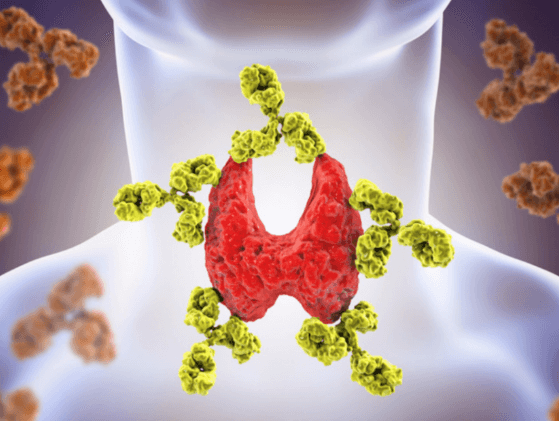Navigating Life with Hashimoto’s Thyroiditis

Living with Hashimoto’s Thyroiditis can be challenging but manageable. This guide offers insights and practical tips for understanding and managing the condition, helping patients and wellness enthusiasts lead healthier, happier lives.
What is Hashimoto’s Thyroiditis?
Hashimoto’s Thyroiditis is an autoimmune condition that primarily affects the thyroid gland. This small gland, located at the base of the neck, plays a crucial role in regulating metabolism through hormone production. When Hashimoto strikes, the body’s immune system mistakenly attacks the thyroid, leading to inflammation and often resulting in hypothyroidism, where the gland doesn’t produce enough hormones.
Hashimoto’s is one of the most common causes of hypothyroidism in the United States. It predominantly affects women, though men and children can also be diagnosed. Its prevalence underscores the importance of understanding this condition, as early detection and management can significantly improve quality of life.
See also: Why Sourdough Bread Is the Ultimate Choice for Healthy Sandwiches in Sydney
Understanding Hashimoto’s
To effectively manage Hashimoto’s, it’s vital to understand its underlying causes, symptoms, and diagnostic methods. Although the exact cause remains unknown, genetic factors, environmental triggers, and lifestyle choices are thought to contribute to its onset. Common symptoms include fatigue, weight gain, sensitivity to colds, and mood changes, but these can vary greatly from one person to another.
Diagnosis typically involves a combination of blood tests to measure hormone levels and detect specific antibodies indicative of an autoimmune response. Recognizing the symptoms and seeking medical advice early can lead to timely intervention and more tailored treatment plans.
Lifestyle Management
Managing Hashimoto’s often extends beyond medication. Adopting a holistic lifestyle approach can greatly assist in managing symptoms and improving overall well-being. Diet plays a pivotal role; many patients find relief by focusing on nutrient-dense foods rich in vitamins and minerals like selenium and iodine, which support thyroid function. Avoiding gluten and processed sugars may also reduce inflammation and ease symptoms for some individuals.
Stress management is equally important. Chronic stress can exacerbate autoimmune responses, so incorporating mindfulness practices such as yoga or meditation can be highly beneficial. Regular physical activity, tailored to individual capabilities, helps boost energy levels and enhance mood, creating a positive feedback loop for both body and mind.
Medical Treatments and Support
The medical management of Hashimoto’s, often considered an autoimmune disease, usually involves hormone replacement therapy to compensate for low thyroid hormone levels. Autoimmune disease treatments like those in Salt Lake City focus on restoring balance and alleviating symptoms. Levothyroxine is a common medication prescribed, and regular monitoring and adjustments ensure the treatment remains effective.
Alternative treatments, such as acupuncture or herbal supplements, may complement traditional medicine for some patients, but always consult healthcare providers before starting any new regimen. The key is a personalized approach that addresses specific needs, ensuring comprehensive care.
The Future of Hashimoto’s
The landscape of managing Hashimoto’s is evolving thanks to ongoing research and technological advancements. New studies are exploring the roles of gut health and microbiomes in autoimmune diseases, offering potential new avenues for treatment. Personalized medicine, driven by genetic insights, aims to tailor interventions more closely to individual needs, promising more precise and effective management strategies.
Innovations in digital health tools, including apps that track symptoms and medications, provide patients with more control over their health data and facilitate better communication with healthcare providers. These advancements herald a future where managing Hashimoto’s becomes more integrated and patient-centered.
Conclusion
Now that you have a better understanding of Hashimoto’s Thyroiditis, its management, and the resources available, you can confidently navigate life with this autoimmune disorder. Remember to prioritize self-care, connect with others in the community, and stay informed about new developments.






